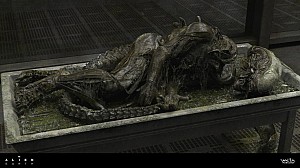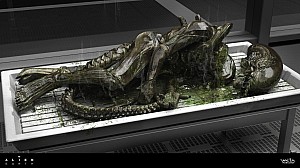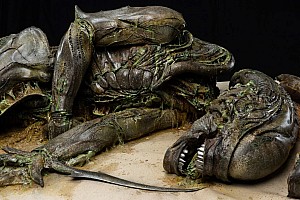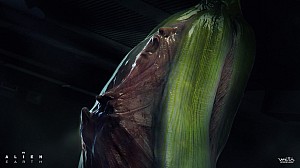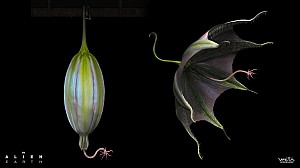donbJune 29, 2012pithos & Belial81 - fascinating commentaries. . . .
I just read Hesiod and Aeschylus' versions... it is very interesting to compare both to the film. You can read them too, they are all over the web, but I am using Aaron Atsma's Theoi.com website.
http://www.theoi.com/Text/HesiodTheogony.html
Hesiod, Homeric Hymns, Epic Cycle, Homerica. Translated by Evelyn-White, H G. Loeb Classical Library Volume 57. London: William Heinemann, 1914.
http://www.theoi.com/Text/AeschylusPrometheus.html
Aeschylus. Translated by Smyth, Herbert Weir. Loeb Classical Library Volumes 145 & 146. Cambridge, MA. Harvard Universrity Press. 1926.
I kind of am skeptical that Scott used Hesiods' version as a source. Mainly because Hesiod seems to be very down on women. For example:
[size=50]"For from her is the race of women and female kind: of her is the deadly race and tribe of women who live amongst mortal men to their great trouble, no helpmeets in hateful poverty, but only in wealth. And as in thatched hives bees feed the drones whose nature is to do mischief -- by day and throughout the day until the sun goes down the bees are busy and lay the white combs, while the drones stay at home in the covered skeps and reap the toil of others into their own bellies – even so Zeus who thunders on high made women to be an evil to mortal men, with a nature to do evil."[/size]
I wouldn't expect the auteur of Thelma and Louise to want this kind of thing to find it's way into any of his other works.
Let's compare with Aeschylus' version. First, it's easier to read because it's a play written in a more modern style, with characters and dialogue.
Aeschylus barely mentions Pandora. Instead, Prometheus says that he himself gave hope to mankind - why and how?
"CHORUS
Did you perhaps transgress even somewhat beyond this offence?
PROMETHEUS
Yes, I caused mortals to cease foreseeing their death.
CHORUS
Of what sort was the cure that you found for this affliction?
PROMETHEUS
I caused blind hopes to dwell within their breasts.
"
Second, Aeschylus' Prometheus doesn't just give fire to the humans. He gives them astronomy, mathematics, carpentry, animal husbandry, etc etc etc.
Thirdly, Aeschylus' Prometheus doesn't just do it for fun or to smite Zeus. In fact, he does it to save the human race from extinction - which is Zeus's desire. Check this out
"As soon as he had seated himself upon his father's throne, he immediately assigned to the deities their several privileges and apportioned to them their proper powers. But of wretched mortals he took no notice, desiring to bring the whole race to an end and create a new one in its place. Against this purpose none dared make stand except me—I only had the courage; I saved mortals so that they did not descend, blasted utterly, to the house of Hades. This is why I am bent by such grievous tortures, painful to suffer, piteous to behold."
...
"They had neither knowledge of houses built of bricks and turned to face the sun nor yet of work in wood; but dwelt beneath the ground like swarming ants, in sunless caves. They had no sign either of winter or of flowery spring or of fruitful summer, on which they could depend but managed everything without judgment"
So essentially, Prometheus gives man the constructs of civilization (agriculture, math, writing, medicine, 'divination') to save man from his own ignorance.
For some reason, to me, these features of Aeschylus really 'ring' when thinking of them in context of the film.
---
An interesting aside. I notice others on this board have discussed the links between the film and Sumerian mythology, especially Gilgamesh searching for the secret of eternal life, meeting the Gods, and being rejected by them.
An interesting myth from Sumeria that doesn't seem to get mentioned much, but parallells Prometheus in some strange ways, is that of Inanna taking from the god Enki the roots of civilization ("Divine Powers", or "Mes", like art, medicine, etc) and bringing them to the people of her city.
You can read a version of this from the The Electronic Text Corpus of Sumerian Literature (ETCSL), a project of the University of Oxford,Faculty of Oriental Studies, translated by "JAB" et al. It's entitled "Inana and Enki"
http://etcsl.orinst.ox.ac.uk/cgi-bin/etcsl.cgi?text=t.1.3.1#
The funny thing about this story is that Enki is a god who dwells in the city Uridu -- Uridu is also a city that one of the pictograms in the film came from, you can see it during Holloway's briefing presentation. Maybe its just a coincidence, but I find it rather amusing.




